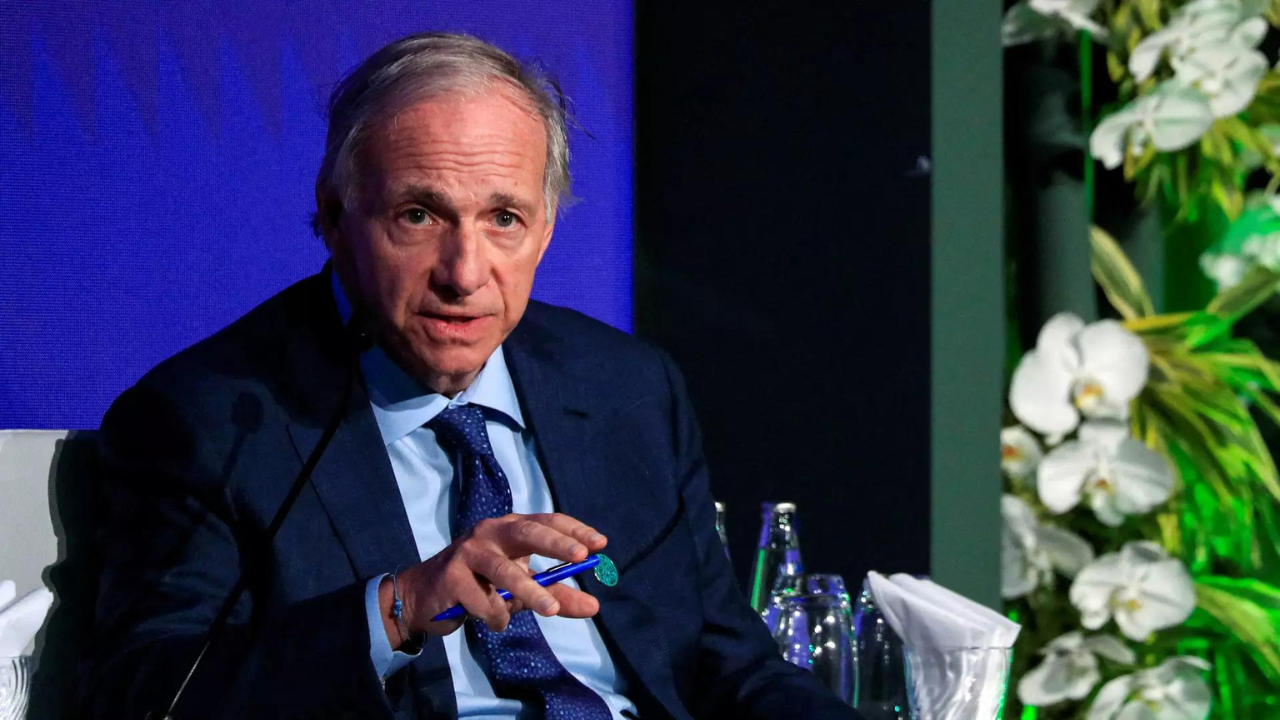Bridgewater Associates founder Ray Dalio defended his decades-long investment in China and pledged he won’t abandon the world’s second-largest economy even with all of the problems there he’s identified and the risks of a war with his own country, the US.
“I have had a wonderful 40-year relationship with the Chinese people and the Chinese culture that has led me to love them.For me, being involved with them and their markets go together and I wouldn’t want to be without either,” the billionaire investor wrote in a LinkedIn post. “I don’t jump in when things are booming and jump out when things are tough because I am neither ‘a fair-weather friend’ nor ‘a fair-weather investor.’”
In an earlier post from March 27, the hedge fund titan had discussed the many difficulties and challenges China’s faced and warned that Beijing should cut its debt and ease monetary policy or face “a lost decade.”
Dalio said China’s problems are manageable now if “Chinese leaders do their job well by being both smart and courageous.” He pointed to signs that the economic leaders in Beijing are preparing to conduct quantitative easing along with debt restructuring to engineer what he described as a “beautiful deleveraging.”
Last week, a line from a 172-page book citing President Xi Jinping’s old comments on the nation’s monetary tools stoked a group of stock and bond traders to argue that may mean Beijing is considering quantitative easing, which involves a monetary authority buying a country’s government bonds. But the speculation was rejected by most commentators, including economists at Goldman Sachs Group Inc.
To Dalio, Chinese policymakers are able to “manage how to deal with political, geopolitical, nature, and technology forces well.” He has long nurtured relations with Chinese officials, expressed admiration for some of Beijing’s economic policies and built business for his firm in China. Dalio was among the prominent American business chiefs sharing the top table with Xi at an exclusive dinner in San Francisco last November.
At the same time, he has also been consistent in warning about the risk of conflict between the world’s two largest economies. Last April, he wrote in a LinkedIn post that tensions could worsen as the US heads toward the presidential election in November 2024.
In Monday’s post he said he understands others when they are concerned “if there is a US-China war it would be disastrous especially if one is an American investor.” Dalio admitted this is one of the issues he thinks about a lot when considering investing in most countries.
None of these, however, seems to stop Dalio from doing business with China.
“To me the key question isn’t whether or not I should invest in China so much as how much I should invest,” he wrote, adding that he sees China as one of his “15 or more good uncorrelated return streams” and “a core position that I will vary from based on my assessments of all of the things I mentioned.”
“I have had a wonderful 40-year relationship with the Chinese people and the Chinese culture that has led me to love them.For me, being involved with them and their markets go together and I wouldn’t want to be without either,” the billionaire investor wrote in a LinkedIn post. “I don’t jump in when things are booming and jump out when things are tough because I am neither ‘a fair-weather friend’ nor ‘a fair-weather investor.’”
In an earlier post from March 27, the hedge fund titan had discussed the many difficulties and challenges China’s faced and warned that Beijing should cut its debt and ease monetary policy or face “a lost decade.”
Dalio said China’s problems are manageable now if “Chinese leaders do their job well by being both smart and courageous.” He pointed to signs that the economic leaders in Beijing are preparing to conduct quantitative easing along with debt restructuring to engineer what he described as a “beautiful deleveraging.”
Last week, a line from a 172-page book citing President Xi Jinping’s old comments on the nation’s monetary tools stoked a group of stock and bond traders to argue that may mean Beijing is considering quantitative easing, which involves a monetary authority buying a country’s government bonds. But the speculation was rejected by most commentators, including economists at Goldman Sachs Group Inc.
To Dalio, Chinese policymakers are able to “manage how to deal with political, geopolitical, nature, and technology forces well.” He has long nurtured relations with Chinese officials, expressed admiration for some of Beijing’s economic policies and built business for his firm in China. Dalio was among the prominent American business chiefs sharing the top table with Xi at an exclusive dinner in San Francisco last November.
At the same time, he has also been consistent in warning about the risk of conflict between the world’s two largest economies. Last April, he wrote in a LinkedIn post that tensions could worsen as the US heads toward the presidential election in November 2024.
In Monday’s post he said he understands others when they are concerned “if there is a US-China war it would be disastrous especially if one is an American investor.” Dalio admitted this is one of the issues he thinks about a lot when considering investing in most countries.
None of these, however, seems to stop Dalio from doing business with China.
“To me the key question isn’t whether or not I should invest in China so much as how much I should invest,” he wrote, adding that he sees China as one of his “15 or more good uncorrelated return streams” and “a core position that I will vary from based on my assessments of all of the things I mentioned.”


